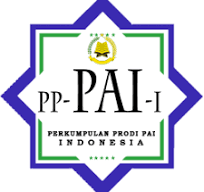Linguistic Equity in Digital Age Education: A Critical Examination of Language Hierarchies, Technological Bias, and Multilingual Pedagogies
DOI:
https://doi.org/10.54069/attaqwa.v21i2.973Keywords:
Algorithmic bias, critical discourse analysis, digital divide, multilingual education, sociolinguisticsAbstract
The digital revolution in education has ushered in unprecedented opportunities for language learning, yet it has simultaneously perpetuated and amplified deep-seated linguistic inequalities that mirror broader colonial and imperial legacies. This comprehensive study interrogates the mechanisms through which digital educational technologies systematically reinforce linguistic hierarchies, marginalizing multilingual learners through algorithmic biases and persistent monolingual orientations embedded within their fundamental architectures. By employing a sophisticated mixed-methods approach that combines critical discourse analysis of dominant platforms, including Duolingo, Rosetta Stone, and Babbel, with extensive ethnographic case studies of translanguaging classrooms across diverse global contexts, this research unveils the systemic privileging of standardized linguistic varieties such as Received Pronunciation and Castilian Spanish at the deliberate expense of Afro-Hispanic, Indigenous, and regional dialectal variations. Neural translation systems demonstrate stark accuracy disparities when processing low-resource languages, while gamification mechanics consistently penalize authentic translanguaging practices that reflect natural multilingual communication patterns. However, classrooms that have courageously adopted critical multilingual digital pedagogies demonstrate significantly enhanced learner engagement, heightened metalinguistic awareness, and stronger heritage language retention rates. This study advances a novel theoretical framework termed critical multilingual digital pedagogy, which synthesizes translanguaging theory with critical technology studies and algorithmic justice principles. It contributes actionable design principles for developing more equitable educational technologies while underscoring the urgent necessity of centering linguistic human rights within contemporary digital education policy frameworks.
Downloads
References
Barocas, S., & Selbst, A. D. (2016). Big data's disparate impact. California Law Review.
Bender, E. M., Gebru, T., McMillan-Major, A., & Shmitchell, S. (2021). On the dangers of stochastic parrots: Can language models be too big? Proceedings of the 2021 ACM Conference on Fairness, Accountability, and Transparency.
Bialystok, E. (2001). Bilingualism in development: Language, literacy, and cognition. Cambridge University Press.
Blodgett, S. L., Barocas, S., Daumé III, H., & Wallach, H. (2020). Language (technology) is power: A critical survey of “bias” in NLP. Proceedings of the 58th Annual Meeting of the Association for Computational Linguistics.
Blommaert, J. (2010). The sociolinguistics of globalization. Cambridge University Press.
Bourdieu, P. (1991). Language and symbolic power. Harvard University Press.
Canagarajah, S. (2011). Codemeshing in academic writing: Identifying teachable strategies of translanguaging. The Modern Language Journal.
Creswell, J. W., & Plano Clark, V. L. (2017). Designing and conducting mixed methods research. Sage.
Cummins, J. (2000). Language, power, and pedagogy: Bilingual children in the crossfire. Multilingual Matters.
Fairclough, N. (2013). Critical discourse analysis: The critical study of language. Routledge.
Feenberg, A. (2017). Technosystem: The social life of reason. Harvard University Press.
Flores, N., & Rosa, J. (2015). Undoing appropriateness: Raciolinguistic ideologies and language diversity in education. Harvard Educational Review.
García, O. (2009). Bilingual education in the 21st century: A global perspective. Wiley-Blackwell.
García, O., & Li Wei. (2014). Translanguaging: Language, bilingualism, and education. Palgrave Macmillan.
Hornberger, N. H. (2005). Opening and filling up implementational and ideological spaces in heritage language education. The Modern Language Journal.
Noble, S. U. (2018). Algorithms of oppression: How search engines reinforce racism. NYU Press.
Paris, D., & Alim, H. S. (Eds.). (2017). Culturally sustaining pedagogies: Teaching and learning for justice in a changing world. Teachers College Press.
Phillipson, R. (1992). Linguistic imperialism. Oxford University Press.
Ricento, T. (Ed.). (2006). An introduction to language policy: Theory and method. Blackwell.
Skutnabb-Kangas, T., & Phillipson, R. (2017). Linguistic human rights. In G. Hogan-Brun & S. Wolff (Eds.), The Palgrave handbook of minority languages and communities. Palgrave Macmillan.
Toral, A., Castilho, S., & Way, A. (2018). Post-editing of machine translation: The state of the art. Natural Language Engineering.
Warschauer, M. (2003). Technology and social inclusion: Rethinking the digital divide. MIT Press.
Downloads
Published
How to Cite
Issue
Section
License
Copyright (c) 2025 Habib Badawi

This work is licensed under a Creative Commons Attribution-NonCommercial 4.0 International License.





